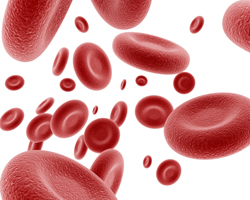SHARE WITH FRIENDS:
Rhesus conflict
People are Rh-positive or Rh-negative. Eighty-five percent of the population has D antigens, which means that the majority of the population is blood group positive. The remaining 85% do not have them, which means that these people have a negative blood type.
Problems arise when the mother’s blood type is negative, but her child is positive as a result of the father having a positive blood type. Rhesus disease, otherwise known as hemolytic disease of the newborn, is a complication in which the mother may produce antibodies that attack the red blood cells of the Rh-positive baby.
A mother with rhesus disease can prevent rhesus disease by injecting a special compound called anti-D within 72 hours of having a baby. It is especially important for her to accept this because future children can be affected.
What about the baby?
If an Rh-negative mother and her Rh-negative partner conceive a child, there is no problem because the baby also has a negative blood group and no antibodies are produced. Similarly, there will be no problems when an Rh-positive mother conceives a child with a person who is Rh-negative.
The good news is that rhesus disease is very rare in developed countries. Blood group testing is a common antenatal procedure for all mothers in the early stages of pregnancy. If the mother’s blood type is negative, this is noted in her schedule and the next blood test for antibody screening will be done at 28 weeks of gestation.
What are the different types of blood?
- Blood groups come in the form of A, B, AB or O.
- Rhesus factor is added to the blood group, e.g., negative, (A-) B positive (B +), and so on.
Genes work in pairs. Fathers with a positive blood type can carry both positive and negative genes. Because it is positively dominant, its blood type classifies it as positive. But any child who has a father has an equal 50/50 chance of being positive or negative. But if she has two positive genes, then all her children will be Rh-positive.
How does rhesus disease occur?
When an Rh-negative mother comes in contact with her baby’s Rh-positive blood, she may have an immune reaction. This can happen not only during pregnancy, but also during pregnancy. During a healthy and normal pregnancy, there is no bleeding between the mother and her baby before birth.
Rh-negative mothers who bleed from the vagina during pregnancy or who have terminated a pregnancy may have a positive effect on the fetal blood. Similarly, when people are allergic to a particular food, if they have an allergic reaction, it happens when the mother’s body is exposed to foreign antigens in her baby’s blood.
The mother’s body sends antibodies called anti-D antibodies to attack the Rh-positive cells shed in the baby’s system. If her baby is Rh-positive during a future pregnancy, then antibodies against D will cross the placenta and attack the baby’s red blood cells.
Treatment of hemolytic disease of the newborn
Children with this disease are born with anemia and jaundice, which means that they do not have enough iron reserves and high levels of bilirubin in the blood. This means they need a blood transfusion to bring their iron levels to a healthy and normal level. This is a carefully planned procedure in which a small amount of the baby’s blood is replaced with healthy donor blood. This means that anti-D antibodies are no longer present and new red blood cells can work when needed.
What could it be?
Babies may require phototherapy and carefully monitor their iron and bilirubin levels to ensure they fall. If the hemolytic disease of the newborn is significant, it can lead to abortion or stillbirth. High levels of bilirubin can pass from the blood to the brain and cause brain damage.
What is an injection against D?
It is an injection sent to mothers with negative Rhesus within 72 hours after delivery. This prevents the mother from producing antibodies against D, which can cause problems with her future pregnancy. However, a blood test to determine the level of anti-D antibodies is routinely performed for all Rh-negative mothers during subsequent pregnancies.
Women with Rh-negative should receive anti-D injections:
-
When they fell
-
If they terminate the pregnancy (abortion)
-
If they have any trauma or bleeding during pregnancy
-
During amniocentesis
-
If they have injured the abdomen
-
After an ectopic pregnancy

What's up colleagues, its enormous post on the topic of teachingand fully defined, keep it up all the time. Xm (https://Sexynakedpicscokngx.Blogspot.Com/)
What's up colleagues, its enormous post on the topic of teachingand fully defined,
keep it up all the time. Hmm (https://Sexynakedpicscokngx.Blogspot.Com/)